
Why liberal Switzerland is opposed to the Sarco suicide capsule
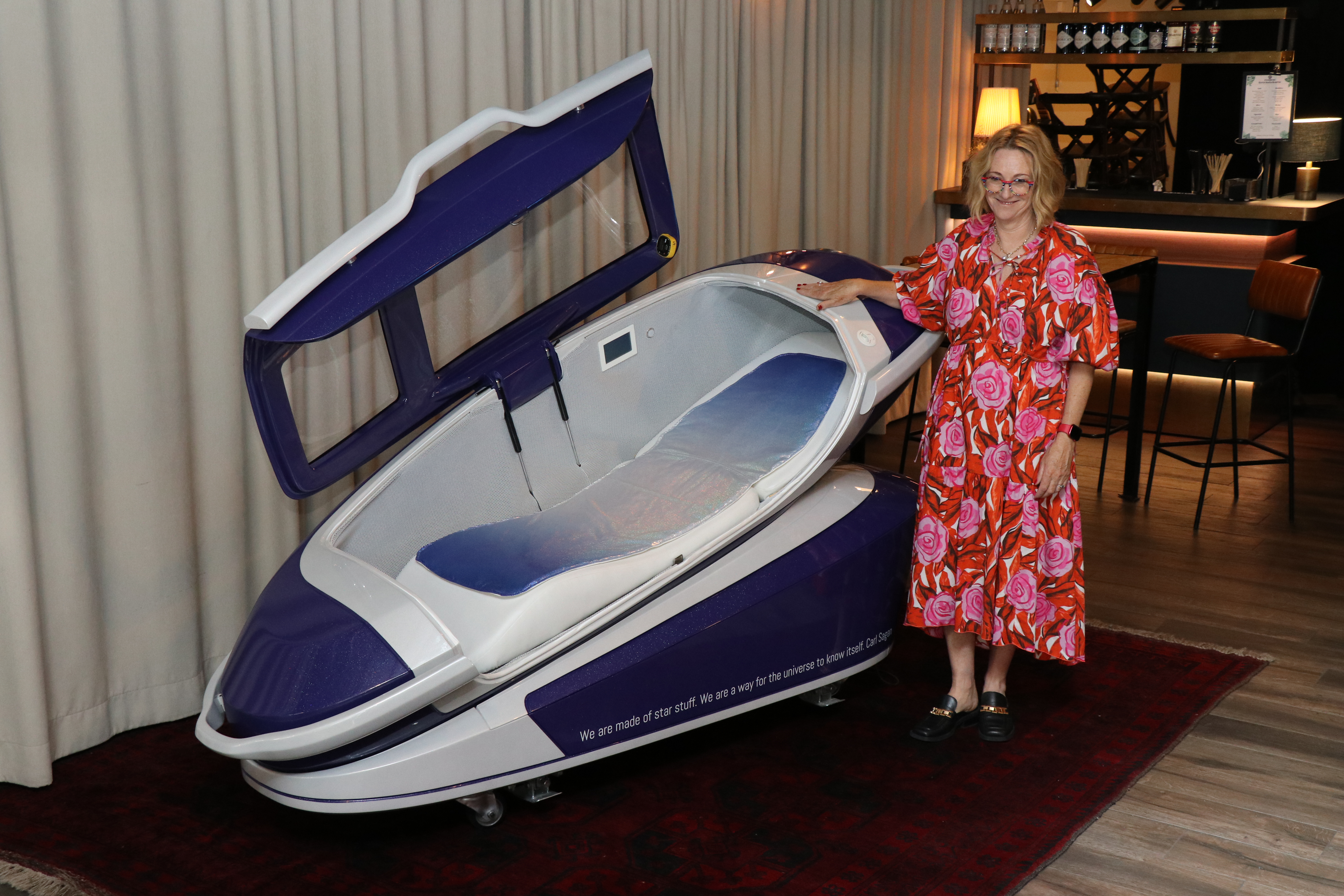
The Sarco suicide capsule will soon be used for the first time in Switzerland, according to its makers. However, cantonal authorities are putting up resistance, and the device has yet to find favour with the country’s established right-to-die organisations.
On July 28, Exit International and The Last Resort announced in a joint statement that the death of an American woman with the Sarco capsule scheduled for July 17 had been permanently postponed.
The woman was originally scheduled to be the first person to use the device. The postponement was due to “increasing concerns about her deteriorating mental health, particularly in light of recent viral media reports about Sarco in Switzerland”, the statement said.
Two days later, the two organisations announced that the woman had died by suicide in a clinic in Switzerland.
The organisations explained that the woman had disappeared after being denied access to Sarco and that she had contacted Pegasos, a Swiss euthanasia organisation.
The media hype is huge. Swiss outlets have been reporting on the Sarco suicide capsule for almost all of July and many foreign media have also picked up the story. After canton Schaffhausen threatened criminal prosecution, canton Valais has now also banned the use of Sarco.
Sarco is the name of a 3D-printed capsule that looks like something out of science fiction. It enables a person to die within a few minutes at the touch of a button – peacefully, or even slightly euphorically, the inventor claims. Sarco, also known as the “Tesla of assisted suicide”, was unveiled to the world five years ago. However, it has never been used.
A press conference and many questions
This is now supposed to change. The capsule’s initiators recently held a press conference in Zurich – in order, they said, to correct “the misinformation circulating”.
At the event they announced that they had set up a new organisation based in Switzerland called The Last Resort. It will oversee the roll-out of the capsule.
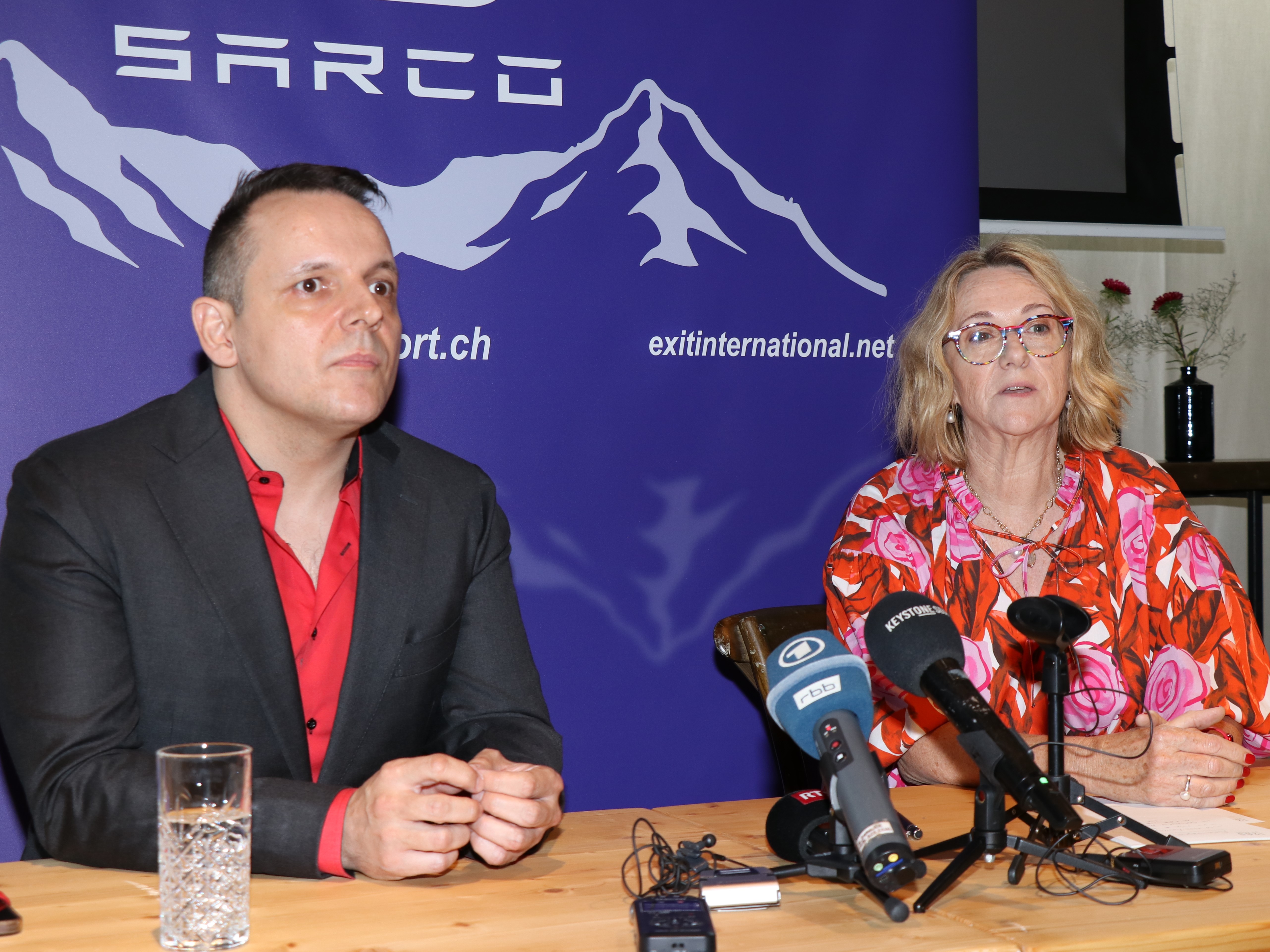
The new organisation’s founders did not reveal very much at the press event. They confirmed that they had contacted several cantons about deploying the capsule, but they gave no details. No decision has apparently been made yet about where Sarco will be used.
In federal Switzerland, the cantons have far-reaching responsibilities, including for the health sector. However, whether the latter has jurisdiction over the capsule is not legally clear.
Fiona Stewart, founding member of the organisation, also did not disclose the name of the first person who wants to end their life with the capsule. “We really don’t want a person’s desire for a peaceful passing in Switzerland to turn into a media circus. It’s highly unethical.”
As for the timing of the launch, Stewart said it would be “this year”. Her co-president Florian Willet added that “it’s absolutely possible that within a couple of weeks or months someone will indeed be using the device”.
Inventor plays second fiddle
Sarco was invented by Australian doctor and euthanasia advocate Philip Nitschke and Dutch engineer Alex Bannink. Nitschke founded the voluntary assisted-suicide organisation Exit International in Australia in 1997. It has no connection with the Swiss right-to-die organisation Exit.
Stewart is Nitschke’s life partner and is also involved in the activities of Exit International.
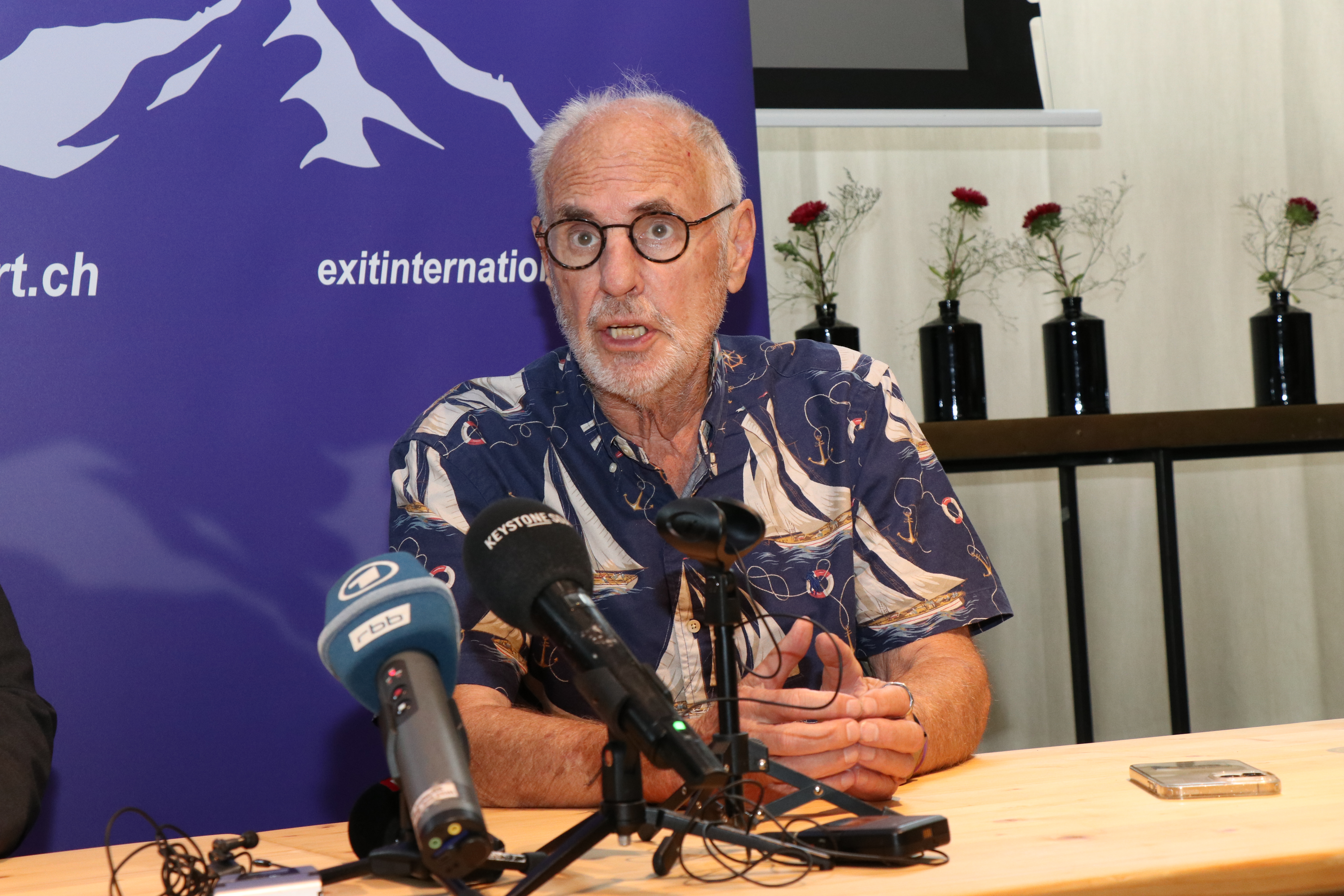
Sarco causes death through nitrogen hypoxia. After answering a few questions, the user presses a button in the capsule, whereupon a large amount of nitrogen is released, causing the oxygen level to drop from 21% to 0.05% in less than 30 seconds.
According to Nitschke, the person loses consciousness after two breaths and dies without suffering in around five minutes. The oxygen content in the capsule and the person’s heart rate can be monitored remotely, he told the media in Zurich. It was striking that Nitschke, whose often controversial statements have sparked much publicity in the past, only made an appearance at the end of the event.
More
An almost cost-free death
The makers said that since starting the Sarco project in 2012, it had cost the equivalent of over CHF600,000 ($683,000). The 3D printing of a capsule costs around CHF15,000. Because the capsule is intended to be accessible to everyone, regardless of means, it is free to use, Stewart said. Users will, however, have to pay for the nitrogen, which costs around CHF18.
The capsule’s technical functioning capacity has been tested several times, for example last year in Rotterdam in the Netherlands.
According to the organisation, people over the age of 50 who are sound of mind will be able to use the Sarco capsule. It could, however, also be made available to younger people with incurable diseases. Unlike for Swiss assisted-dying organisations, no paid membership is required.
Supposedly liberal Switzerland
Nitschke chose Switzerland for his capsule because of the country’s comparatively liberal legal situation. Under Swiss law, helping another person to die is not a criminal offence as long as there is no selfish motive.
The professional association of Swiss doctors, the FMH, has also drawn up a code of ethics on assisted suicide. This states that healthy people should not be helped and that a doctor must conduct two consultations beforehand. However, the code is not legally binding.
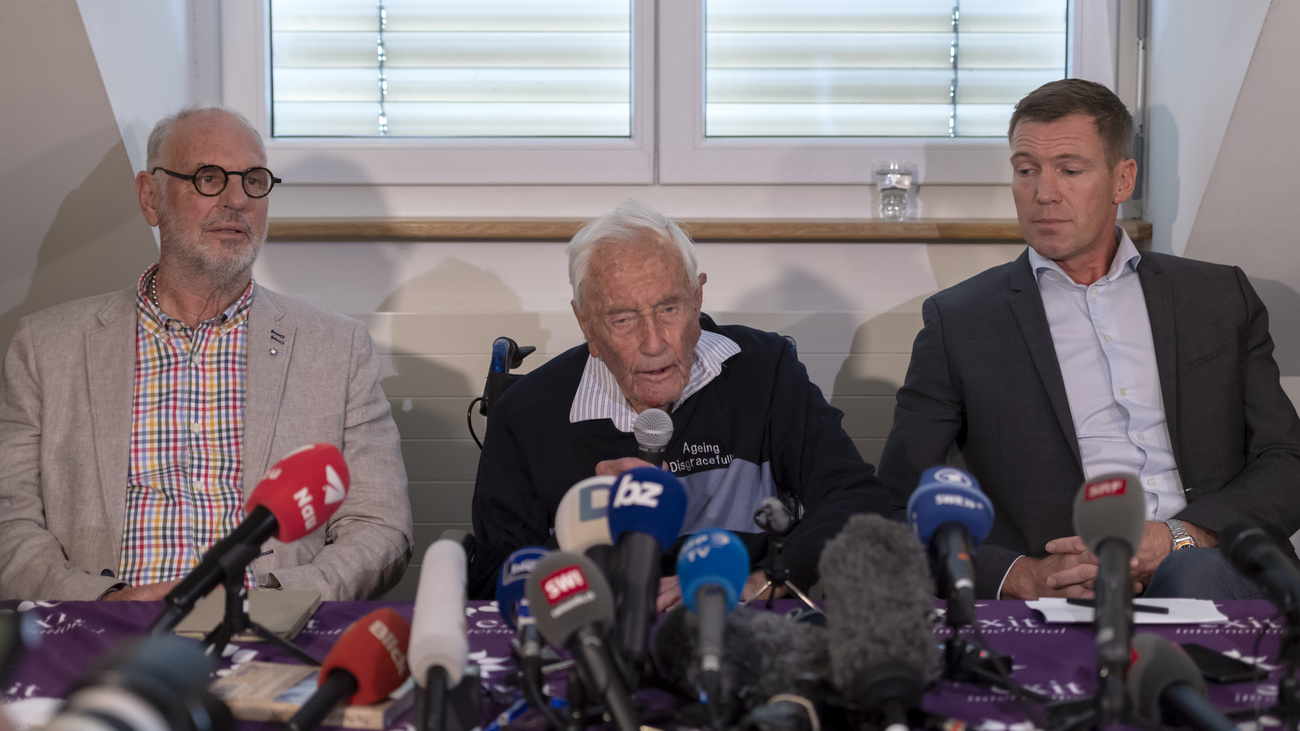
More
Foreigners fret over stricter Swiss rules on assisted suicide
As co-president Willet said at the press conference, thanks to its “wonderful liberal system” Switzerland is “by far the best place [to roll out Sarco]”. His organisation is confident that Sarco can be used legally in Switzerland.
This, the organisation says, is because the capsule fulfils the three requirements for legal assisted dying: the users press the button themselves, they must have unclouded judgement, and the organisation providing Sarco has no self-serving motives.
“We have taken extensive legal advice over the last two years. It is our understanding that there is no legal impediment to Sarco being used,” Stewart said.

More
Assisted suicide: death with dignity or ethical dilemma?
Legal grey area
In Valais, the cantonal doctor intervened against the use of the capsule there. He argued that the Swiss health regulator, Swissmedic, had not approved the capsule.
Swissmedic, however, does not consider itself responsible, as it does not currently classify Sarco as a medical device. “We have come to the conclusion that the intended purpose of a suicide capsule does not correspond to any specific medical purpose stated in the law. Bringing about death is not a treatment or alleviation of illness, injury or disability,” said Lukas Jaggi, media spokesperson for Swissmedic, when contacted by SWI swissinfo.ch.
In canton Schaffhausen, the public prosecutor’s office had earlier threatened criminal prosecution, citing, among other things, the lack of information available about the capsule.
On this Stewart commented at the media conference: “If there are different legal opinions, it will be a matter for the courts to decide.”
Right-to-die organisations worried
The established Swiss assisted-suicide organisations are all opposed to the capsule. The main reason is because The Last Resort wants to remove doctors from the process as much as possible.
Potential users of Sarco need a psychiatric report confirming their capacity for judgement. Otherwise, there is no medical intervention in the process. Nitrogen does not require a prescription and is freely available in Switzerland.
The Swiss model of assisted dying, which has been practised since the early 1980s, requires the involvement of a doctor. This is also the case in other countries where euthanasia is permitted, such as the Netherlands.
One reason is that sodium pentobarbital is used as a lethal drug in Switzerland. This must be prescribed by a doctor, which is why Swiss law requires conditions such as “suffering from an incurable illness”. Assisted suicide takes place after consultation with a doctor, if the doctor agrees.
Under Swiss law, assisted suicide is legal if the person is of sound judgment, has a persistent wish to die and carries out the act themselves. However, Swiss assisted-dying organisations impose the following additional conditions:
– The person suffers from uncontrollable and unbearable pain.
– The person suffers from an incurable disease.
– The person has an unbearable disability.
The assisted-suicide organisation Dignitas told SWI swissinfo.ch that professional medical suicide assistance is practised by trained staff and that every accompanied suicide is checked by the authorities (public prosecutor’s office, police and medical officer).
“In light of this legally secured, established and proven practice, we cannot imagine that a technologised capsule for a self-determined end of life will meet much acceptance or interest in Switzerland,” Dignitas said.
According to Erika Preisig, a doctor and president of the Basel-based organisation Lifecircle, medical intervention also serves as a “gatekeeper” to prevent unnecessary suicides.

More
Why assisted suicide is ‘normal’ in Switzerland
“I fear that people without sufficient information about alternatives to suicide and who have not thought their death wish through carefully will be unscrupulously helped to die,” she told SWI swissinfo.ch.
The Swiss organisations also describe Sarco as inhumane, as the person has to die “alone” in the closed capsule, separated from their relatives.
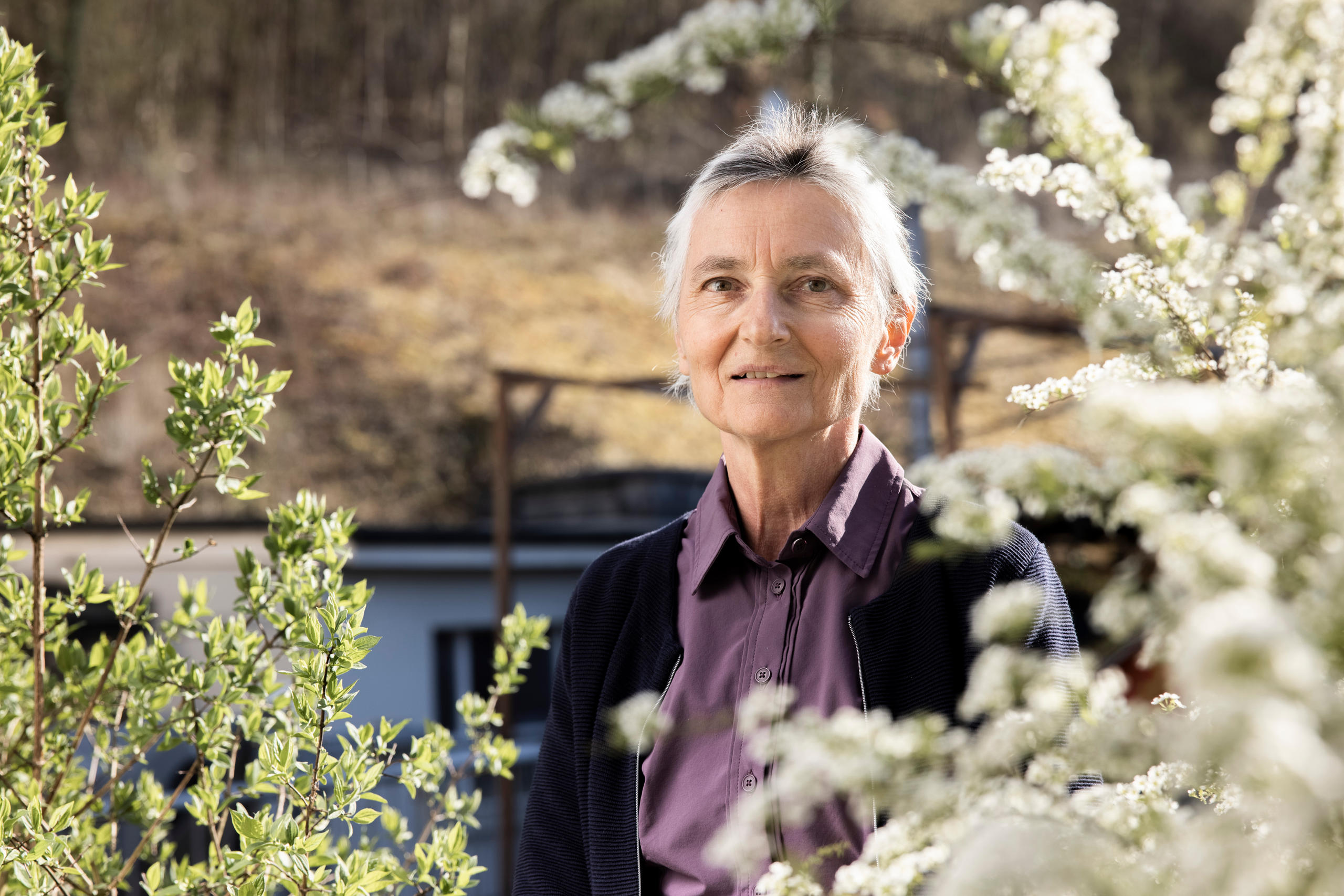
More
‘I don’t want to kill anybody’
The oldest and largest euthanasia organisation in Switzerland, Exit, said in a statement that its members and their relatives appreciate “not being separated from each other when dying, but being able to touch and hold each other during the last minutes if needed”. The suicide capsule, which makes this final contact impossible, runs counter to Exit’s principles.
Some people also fear that Sarco could jeopardise the liberal Swiss assisted-dying system, or at least trigger regulations. “I’m starting to think that all assisted-suicide organisations should have an operating licence for Switzerland,” Preisig said. This would make cases such as the Sarco capsule impossible in the future.
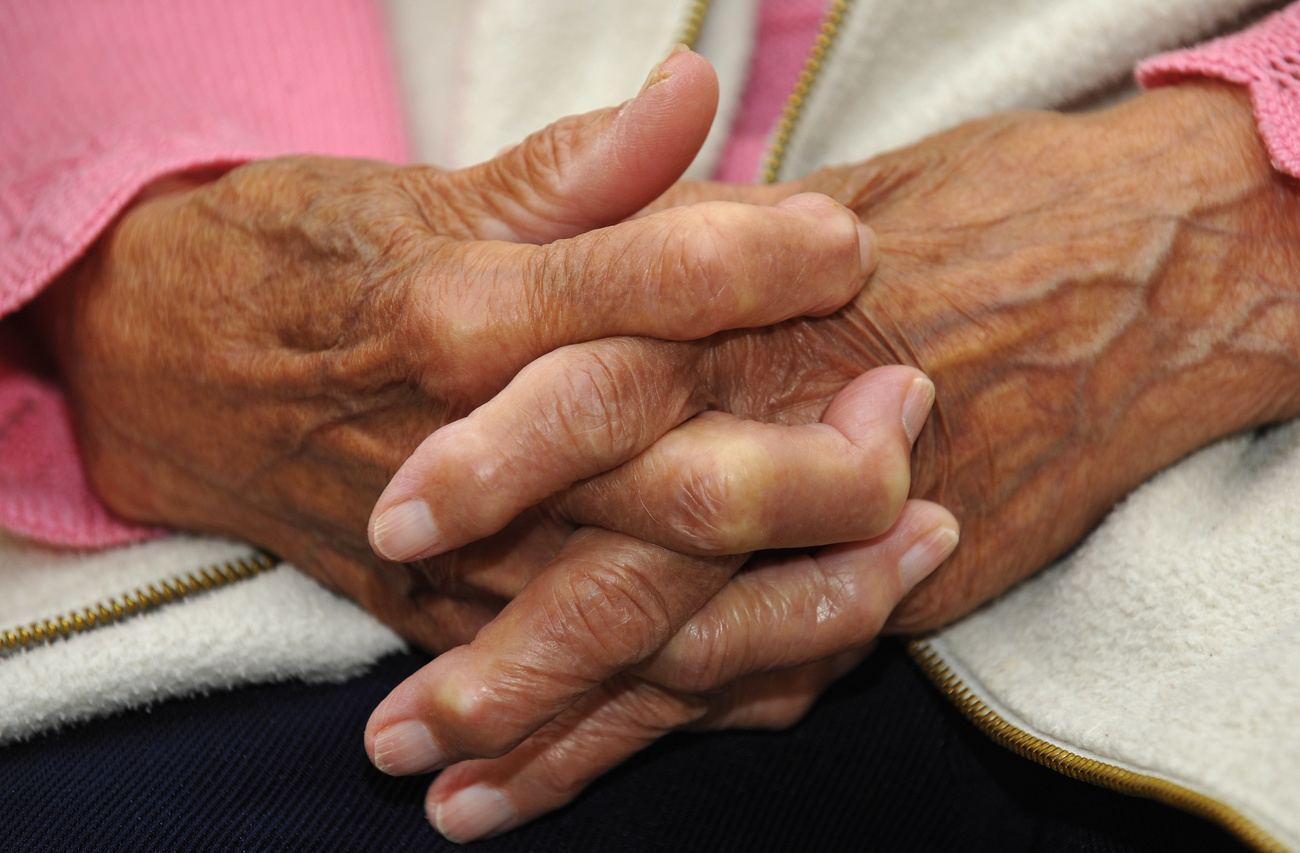
More
Membership in Swiss assisted-suicide organisations reaches record high
The southern state of Alabama has executed a man sentenced to death using nitrogen gas, making it the first US state to use this gas in an execution.
For several years, US states have had difficulty procuring lethal drugs for executions, as pharmaceutical companies have stopped selling them for ethical reasons.
Although the Alabama authorities claimed it would be a painless and humane death, the United Nations warned that the untested method could amount to torture. Some witnesses told the local media that they had seen the prisoner suffering an agonising end.
Nitschke appeared in court in Alabama as an expert witness for the prisoner’s legal team. He said that nitrogen hypoxia could bring about a peaceful death only if the person was willing to die, and that the face mask used was unsuitable as it could leak.
At the Zurich press conference, Nitschke stressed that “there is a big difference between a person who wants to die and one who does not want to die. Sarco will work perfectly if the user wants to die”. Also, the capsule does not use concentrated gas, he said, unlike in Alabama.
Are you having suicidal thoughts or do you know someone who needs support? Then contact the Dargebotene Hand (offered hand) in Switzerland, telephone number 143. You can find email and chat contacts at www.143.ch (in EnglishExternal link). The service is anonymous and free of charge. For children and young people, Pro Juventute operates the telephone number 147. They can be contacted by text message, chat and email at www.147.chExternal link (German). Here is further information and helplines in SwitzerlandExternal link concerning suicide.
Edited by Marc Leutenegger. Adapted from German by Julia Bassam/ts

In compliance with the JTI standards
More: SWI swissinfo.ch certified by the Journalism Trust Initiative
















![The four-metre-long painting "Sonntag der Bergbauern" [Sunday of the Mountain Farmers, 1923-24/26] had to be removed by a crane from the German Chancellery in Berlin for the exhibition in Bern.](https://www.swissinfo.ch/content/wp-content/uploads/sites/13/2025/12/01_Pressebild_KirchnerxKirchner.jpg?ver=cb688ed5)















You can find an overview of ongoing debates with our journalists here . Please join us!
If you want to start a conversation about a topic raised in this article or want to report factual errors, email us at english@swissinfo.ch.